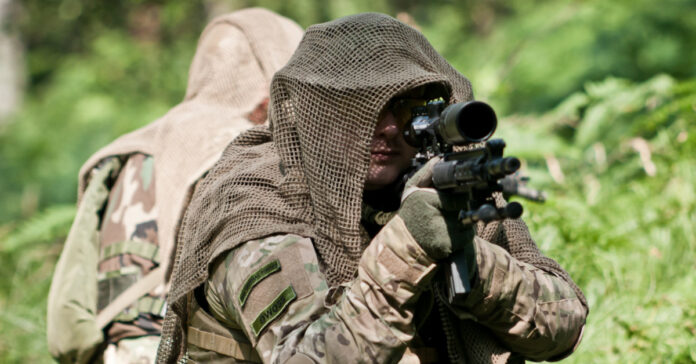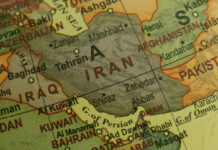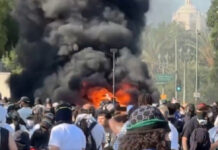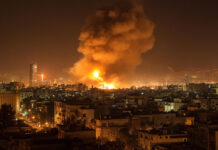
I used to shoot with a guy whose email signature included the phrase “Si vis pacem, para bellum,” which translates as “If you want peace, prepare for war.” A more contemporary statement might be, “the best defense is a good offense.”
Countries like Poland, Taiwan, and Japan are rapidly gearing up for war. They have committed to spending billions of dollars and are building troop levels and armaments. The only question is whether they can prepare fast enough. It may well be too late as countries like Russia and China already appear to be on to a war footing with a war economy. It’s like a footrace to see if they can attack before the targets build adequate defenses.
The lesson for the rest of the word, and for preppers, is you need to prepare for war before one lands on your doorstep. Let’s ignore the global war picture and leave unanswered questions like when will China invade Taiwan and take this down to a more intimate level: What are you doing to prepare for war?
You might think, “I’m not a soldier. I’m not in the Reserves. I won’t have to go to war.” But what if war comes to you?
Local Conflict
There are scores of potential scenarios in which you may be called upon to defend yourself, your family, or your neighborhood individually or in a collective battle. Some of these could be small-scale, one-on-one or one-on several encounters in which criminals who want your phone, your money, or your car attack. Crime is rising, so these confrontations could happen today. During a period of upheaval or collapse, you will need to be on the lookout for attacks. For example, it took just hours for looters to strike during the blizzard in Buffalo. As soon as they knew the police could not respond, criminals stated looting stores. Reports from the ground imply the official news coverage downplayed incidents during the blizzard.
Although less likely, there could also could be larger scale incidents. Here are just a few scenarios:
- A nearby march or protest spills out of the permitted area and before police can react, protesters and looters overrun your neighborhood. Instead of smashing windows and setting fires to stores, they are targeting houses on your street. The police are outnumbered and unable, incapable, or unwilling to respond. Are you prepared to defend yourself, your family and your home, like the Korean merchants did in the Rodney King riots? If the criminals bring the war to your home, are you rolling over or fighting back?
- Civil War II breaks out, and you live on the contested suburban landscape where the red and blue lines rub up against each other. Your neighbor with all the political yard signs shows up at your door with a squad of six other neighbors and says “your type” is no longer welcome in the neighborhood. He isn’t talking about your race or ethnicity; he’s talking about your politics. They give you 24 hours to take your stuff and leave. Do you leave, or do you shoot him the next time he walks out his door? Or maybe both?
Global Wars
After the war broke out, Ukraine refused to let men of military age leave the country. The leadership knew it would need them to fight, to build weapons, to operate drones, to keep the utilities running, and to produce food. They are hardly the first country to put their people to work during a war. Most times, people are patriotic and step up when the call goes out.
At my age, I’m not deploying anywhere, but if the enemy is at the gates, I’m joining the resistance. Whether it’s calling in drone and artillery strikes or acting like I’m in the movie Red Dawn, I’m going to be taking some action.
During World War II, pretty much everybody in Britain was part of the war effort. Those that were too old to enlist joined the Home Guard and prepared to defend Britain from an invasion. Compare the results to those in France, which quickly fell to Germany. Likewise, while able-bodied American men were joining the military, the women went to work building ship, tanks, and planes. As Rosie the Riveter donned her work gloves, her grandfather grabbed his binoculars and 1903 Springfield rifle and became a lookout, a guard, or made another contribution to the war effort.
If we end up in a war that isn’t nuclear, it’s certainly possible that scenario could happen again.
Post SHTF
Maybe I’ve read books like Patriots and The Postman too many times, but I think the first few years after the SHTF are going to be pretty ugly in a dog-eat-dog way. Without the rule of law, the strong are going to survive by taking from the weak. You and yours going to need to be strong enough, or at least appear strong enough, to fight back. That’s going to be tough if all you have is a Ruger 10/22 and a compound bow.
So what are you doing to prepare for war?
Sure, guns, ammo and gear are going to be important, but so are tactics, communications, intelligence, and cooperation with others in a similar situation. This is the time to build those resources—like sourcing radios and drones — and relationships. Taiwan, for example, could spend its entire GDP on weapons, and China would still over run it. Their relationship with the U.S. is what is making China think twice. What relationships can you build that will improve your mutual survivability in a post-SHTF scenario?
Taiwan has a 100-mile straight filled with choppy water and high winds to protect it from Mainland China. What geographic features can you use to prevent the enemy from driving up to your front door, much like Russia did in Ukraine? Stopping an attack a quarter of a mile from your home is better than your house getting filled with bullet holes. Stopping them two or even five miles away is even better. Look at the terrain and find ways to make it work for you. Create funnels and obstacles to put attackers at a disadvantage.
Maybe you should consider a Homestead Defense bag, or an ammo can of key calibers you can throw in the car if you bug out. Maybe this is the time to build a cache, or even stash some weapons.
Whatever steps you decided to take, you’ll be better off than you are today. Incremental improvements add up. To ensure peace, it may be time to prepare for war.







Is the Patriots a good book series? It’s on my list. I may need to bump it up a few spaces.
Yes, Patriots is a useful book for preppers, and is recommended reading for all preppers. It holds up well more than 20 years later, even though parts are going to be a bit dated. I enjoyed the second book, but the third not as much. Here’s my review of the original: https://pickled-prepper.com/2021/01/book-patriots-holds-up-well-more-than-two-decades-later/
Comments are closed.